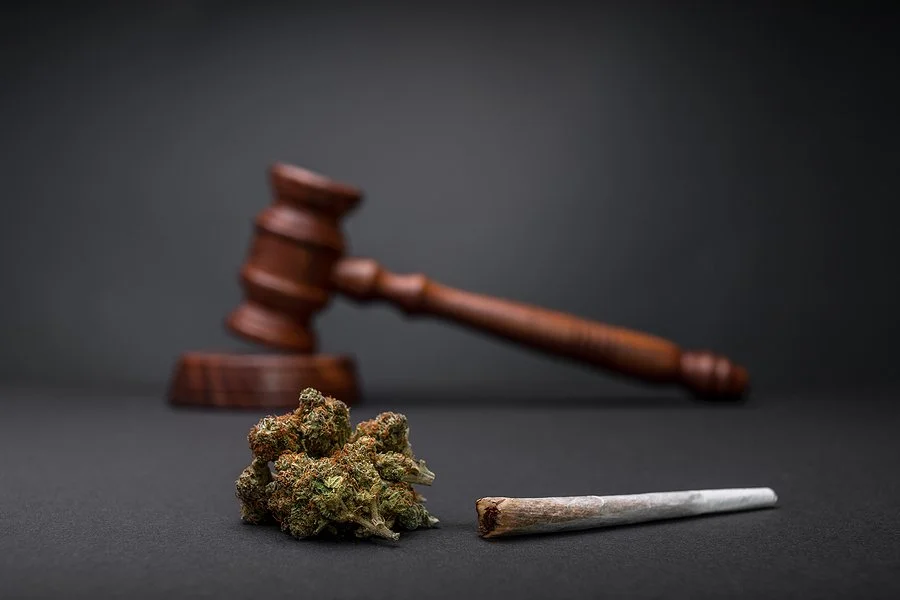Navigate the Nuances of Florida Drug Testing Laws: A Comprehensive Guide

Florida drug testing laws are essential for maintaining a safe and lawful workplace, but what do they entail for employers and employees? Our guide helps you understand the specifics: from your right to test or be tested to the protections you’re granted under state law. We’ll cover the when, where, and how of drug testing in Florida, providing the insights you need without legal jargon – whether you’re executing a drug-free policy or subject to testing.
Key Takeaways
- Florida’s drug testing laws establish a balance between enabling employer drug testing and protecting employee privacy and rights, necessitating a written drug testing policy and reasonable suspicion for initiating tests.
- Incentives from the Drug-Free Workplace Act reward Florida employers with workers’ compensation insurance premium discounts for creating a drug-free environment, with the potential to deny compensation following a positive drug test result.
- Accurate drug testing in Florida relies on a variety of methodologies, thorough initial and confirmation testing processes, and strict adherence to laboratory protocols mandated by state drug testing standards.
Navigating Florida’s Drug Testing Regulations

In Florida, the Agency for Health Care Administration has a crucial role in shaping drug testing regulations that influence workplace safety and employee well-being. This body designs the blueprint for drug-free workplace programs, integrating robust testing procedures, employee rights, and employer obligations. Understanding these regulations goes beyond mere compliance; it contributes to a culture of trust and safety.
Employers wield the authority to conduct drug testing, yet they must navigate a maze of guidelines that protect the rights of their workforce. Simultaneously, employees are armed with protections that secure their dignity and privacy. The dance between employer prerogatives and employee safeguards is choreographed by the state, ensuring every step is measured and every pivot is just. We will delve into the complexities of this process to explore the rights, protections, and substances pivotal to Florida’s drug testing regulations.
Understanding Employer’s Rights to Conduct Drug Testing
Employers in Florida aren’t left to wander in the dark; the state illuminates the path with clear mandates on conducting drug testing. Before the first test is administered, a written policy statement must be in place—a beacon for both employees and job applicants, outlining the what, why, and how of the drug testing process. Moreover, the financial responsibility for this practice falls squarely on the employer’s shoulders, ensuring that the cost barrier doesn’t impede the pursuit of a drug-free workplace.
However, the right to test is not absolute; it is bound by the principles of reasonable suspicion and fairness. Employers can only initiate random testing when behavior or evidence indicates drug use, or as part of a routine medical examination for a specific employment group, where employees may undergo drug testing. This balanced strategy ensures reasonable suspicion drug testing is not arbitrary but based on reasonable cause or uniform application.
Employee Protections and Drug Test Procedures
In the land of the free, Florida’s employees are not left without a shield when it comes to drug testing. The rules are etched with the ink of fairness, ensuring that those taking prescription drugs for disabilities are not unjustly penalized under the vigilant gaze of the Americans with Disabilities Act (ADA). When a drug test looms on the horizon, employees are forearmed with information about the procedure, and in the event of a positive initial result, the confirmation test and medical professional’s verification stand as the twin pillars of justice, ensuring no one is wrongfully accused.
The voice of the employee echoes in the halls of due process; they can challenge initial results, and in some cases, demand an immediate retest. The clock ticks for five days, during which an employee can raise their banner against a positive finding, while confidentiality wraps the results in a cloak of privacy, safeguarding personal information in accordance with EEOC guidelines.
Diverse Substances Subject to Drug Tests
The scope of substances that can be detected is as wide as Florida’s sandy beaches. The Agency for Health Care Administration sets the stage, determining the minimum detection thresholds that separate the innocent from the implicated. Whether it’s the remnants of marijuana, the traces of cocaine, or the markers of opioids, each substance is subject to scrutiny with predefined cutoff levels that ensure only true positives pass through the gates.
Beyond the usual suspects, tests dive deeper to uncover the presence of phencyclidine (PCP) and amphetamines, with levels carefully calibrated to flag use but not casual contact. It’s a scientific approach, where precision is paramount and accuracy is the cornerstone of every test administered.
The Drug-Free Workplace Act and Incentives

The Drug-Free Workplace Act is Florida’s clarion call to employers, urging them to foster environments untainted by the shadow of drug use. The act isn’t just a set of rules; it’s a guiding light, offering incentives to those who tread the path of diligence and compliance. Among these rewards is a beacon of financial relief—a discount on workers’ compensation insurance premiums, a nod to those who steadfastly adhere to the state’s standards.
The fruits of compliance are ripe for the picking, with employers eligible not only for premium reductions but also the authority to deny workers’ compensation to those who skirt the edges of the law by refusing tests or sailing into the tempest of a positive result post-incident. It’s a powerful deterrent, shifting the economic equation in favor of the vigilant.
Requirements for Achieving Drug-Free Workplace Status
To hoist the Drug-Free Workplace flag, a company must anchor its policies in the bedrock of written statements, educational programs, and supervisor training. It’s a multifaceted approach that weaves together the threads of policy, education, and testing, bolstered by the supportive structure of Employee Assistance Programs. The journey to certification is a commitment—an oath to uphold a standard that benefits all within the workplace’s embrace.
Voluntary yet rewarding, achieving Drug-Free Workplace status is akin to navigating a ship through regulatory waters, with certification serving as a lighthouse guiding the way to reduced impact from drug abuse, safer harbors, and lower costs from workplace accidents. It’s a pursuit that demands dedication, for the rewards are not granted lightly but earned through unwavering commitment to the act’s rigorous standards.
Impact on Insurance Premiums and Workers’ Compensation
When the seas of compliance are successfully navigated, the shores of economic advantage beckon. Employers who embrace the Drug-Free Workplace Act are greeted with the tangible benefit of reduced workers’ compensation insurance premiums, a testament to their efforts to prevent substance misuse’s ripple effects across their operations.
Yet the advantages extend beyond mere fiscal relief. The act empowers employers with the prerogative to withhold workers’ compensation from those who challenge the sanctity of a drug-free environment. It’s a realm where safety and economy intersect, creating a virtuous cycle where fewer accidents mean reduced costs, fostering a safer, more productive workplace for all.
Drug Testing Methodologies and Accuracy

Florida’s arsenal of drug testing methodologies is as diverse as its flora and fauna. From the staple of urine analysis to the depth of hair follicle testing, the tools available are designed to suit different needs and contexts. Each method brings its own lens to the tableau of detection, with accuracy as the common thread weaving through them all. Licensed laboratories serve as the custodians of this process, ensuring that the results withstand the scrutiny of time and law.
Some methods of actual drug testing include:
- Saliva testing
- Sweat patch testing
- Breathalyzers
- Blood tests
- Nail analysis
Each method has its own unique effectiveness and is influenced by the drug in question and the user’s metabolism.
From Initial Screening to Confirmation: Ensuring Accuracy
The quest for accuracy begins with the initial drug test, a preliminary screen separating the clear from the questionable. When the initial alarm sounds, the confirmation test steps in with scientific precision, wielding techniques like GC/MS to dissect and verify the results with surgical accuracy. To ensure the utmost reliability, it is essential to conduct confirmation drug tests after the initial screening, with drug testing conducted in a thorough and precise manner, ultimately leading to a positive confirmed drug test when necessary.
But the process isn’t solely about the numbers and charts; it’s also about the human element. The Medical Review Officer, a physician at the helm, navigates through the data, considering the potential for false positives and the intricacies of individual medical histories. It’s a safeguard, a final checkpoint ensuring that every positive result is not just a number but a finding backed by thorough investigation and compassion.
Ensuring Compliance with State Drug Testing Program Standards
Compliance is the compass that guides the integrity of Florida’s drug testing program. With laboratories operating as the bedrock of this system, they must adhere to a strict set of protocols, ensuring the sanctity of each specimen and the reliability of every result. From collection to analysis, the chain of custody remains unbroken, a testament to the program’s commitment to fair and accurate testing.
Violations of these standards carry significant consequences; drug testing laboratories may face administrative action if they deviate. Employers are encouraged to consult drug testing professionals, ensuring their practices meet the state’s high standards. This requires a joint effort, with licensed facilities at the center and employers playing an active role in striving for a drug-free workplace.
Legal Implications of Drug Test Results

The ripples of a drug test result can extend far into the legal sea, with implications that might alter the course of an individual’s employment and rights. In Florida’s waters, the illegal use of drugs finds no shelter under the ADA, leaving such acts exposed to the full brunt of the law. And yet, the constitution stands guard, ensuring that government-mandated testing does not overstep its bounds, with the Fourth Amendment placing a high bar for reasonableness in searches.
In the public sector, this constitutional shield is particularly robust, demanding that drug testing be justified and balanced, while private employers sail with more freedom, provided they stay within the confines of legal mandates. State laws may also chart additional courses, often steering towards stricter regulations and higher standards of employee protection.
Addressing Positive Drug Test Outcomes
Confronting a positive drug test is a delicate affair, where confidentiality is the watchword and support is the guiding principle. The Florida Drug-Free Workplace Act stands as a beacon, recommending that employees found in the tumultuous waves of substance abuse be offered lifeboats in the form of a drug rehabilitation program. It’s a stance that not only seeks to correct but to heal and reintegrate.
In the wake of a positive confirmed test, employers must tread carefully, extending a written notification to the affected individual within five working days. It’s a process shrouded in discretion, ensuring that the matter remains a quiet dialogue between employer and employee, far from the public eye.
Handling False Positives and Medication Disclosures
Dealing with false positives requires careful handling and meticulous attention to detail. Employees can confidentially disclose the use of prescription or nonprescription medications, vital information that can explain unexpected test results. This serves as a protective measure, offering an opportunity to provide clarification before any conclusions are reached.
Proactivity is the best defense against the storm of a false positive, with employees well-advised to:
- Alert their employers to any legally ingested substances that may sway the outcome.
- In the event of a disputed result, a doctor’s note can serve as a beacon, guiding the way to a retest or a cleared name.
- Throughout these proceedings, the strictures of the ADA and HIPAA offer a sanctuary of privacy and a promise of reasonable accommodations.
Employer Strategies for Implementing Drug Testing Policies

Developing an effective drug testing policy is similar to navigating regulatory frameworks, with the Drug-Free Workplace Act as the guiding principle. Employers need to assess their unique circumstances, choose suitable testing methods, and ensure the program aligns with the company’s culture. This is a strategic task, requiring a harmonious blend of legal compliance and human resource considerations.
The pillars of a robust drug testing policy include written documentation, educational outreach, and the embrace of evidence-based prevention interventions. With the employer bearing the cost of mandated testing, it’s a commitment that extends beyond mere compliance; it’s a declaration of the company’s dedication to its crew’s well-being.
Balancing Safety and Privacy in the Workplace
In pursuing a drug-free workplace, the dual goals of safety and privacy must be carefully managed. While drug testing acts as a deterrent, it also helps identify and support individuals in need. This fine balance forms the foundation of a policy that respects individual rights while promoting overall workplace safety.
Employers must therefore sail through legal requirements and privacy concerns with precision, ensuring procedures are transparent and just. A drug-free workplace not only enhances overall safety and productivity, but it also embodies a commitment to the well-being of each individual. The benefits are manifold—a reduction in absenteeism and the costs associated with substance abuse disorders, to name a few.
Ultimately, a culture of safety and respect is not just good policy; it’s good business.
Incorporating Drug Testing into Employee Health Initiatives
When drug testing is woven into the broader fabric of employee health initiatives, it becomes part of a comprehensive approach to workplace wellness. This integration signals to employees a commitment that extends beyond legal compliance to genuine care for their health and well-being.
Key elements of a thorough drug-free workplace program include:
- Testing
- Education
- Training
- Support systems like Employee Assistance Programs
When coupled with health and wellness initiatives, they foster a supportive environment that empowers employees to seek help when necessary. This approach not only improves safety but also reinforces the company’s investment in the overall quality of its workforce’s life.
Summary
As we draw the curtains on our voyage through Florida’s drug testing laws, we are reminded of the intricate balance between maintaining a safe workplace and respecting individual rights. Employers are tasked with navigating a complex legal framework, ensuring not only that they comply with the Drug-Free Workplace Act but also that they foster a culture of safety and understanding. Employees, on the other hand, are granted a shield of protections and rights, ensuring their privacy and providing them with avenues to seek assistance if needed.
This guide has charted the waters of Florida’s drug testing laws, from the employer’s prerogatives to the employee’s safeguards, the substances tested, and the methodologies used, culminating in the legal and practical implications of drug test results. Remember, the journey does not end here; continuous education and adaptation to evolving laws and technologies are essential for a harmonious and productive workplace.
Frequently Asked Questions
What are the rights of drug testing in Florida?
In Florida, employers conducting drug testing must provide their policy in writing to employees and give at least 60 days’ notice. Employees who test positive have five days to contest or explain the results.
What is the statute 440.102 in Florida?
In Florida, statute 440.102 outlines the requirements for drug-free workplace programs, including notice, education, and testing procedures (no date).
Can employees contest drug test results in Florida?
Yes, in Florida, employees have the right to contest initial drug test results within a 5-day window to ensure due process.
How are privacy concerns addressed in Florida’s drug testing procedures?
In Florida, privacy concerns in drug testing are addressed through mandated confidentiality of results and the requirement for employers to obtain written consent from employees before releasing any information (source: local regulations).
What substances are included in Florida’s workplace drug testing programs?
Florida’s workplace drug testing programs include substances such as alcohol, cannabinoids, cocaine, opioids, PCP, and amphetamines, with minimum cutoff levels set by the Agency for Health Care Administration.

